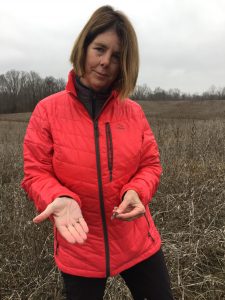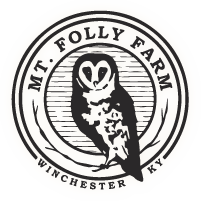It’s official. 2018 was the wettest year in central Kentucky since area record-keeping began in 1872.
Our non-gmo soybeans are still in the field. We’ve been unable to harvest them because we’ve not gotten a good period of dry. Driving into town, I see other farmers in the same situation, fields unharvested. It’s a real mess, but one that was predicted by climate specialists at the Donella Meadows fellowship 10 years ago. “Kentucky? Drought and deluge…”
For the farm, this would be a near-disaster, except for the organic hemp crop and the support of our Homestead Alternatives hemp CBD customers. So one lesson — one I didn’t have to learn on a farm, but in life — is don’t count on one thing, but do several things well.
 Obviously, this is easier said than done. It takes us away from the reductionist mid-set, as a farm should. When we switched to organics, this became even more compelling. Everything is connected. We feed the microbes, who feed the plants, who feed us. The climate is impacted by how much carbon our organic soils and timberland can absorb and hold. The local economy is impacted by our ability to make good jobs.
Obviously, this is easier said than done. It takes us away from the reductionist mid-set, as a farm should. When we switched to organics, this became even more compelling. Everything is connected. We feed the microbes, who feed the plants, who feed us. The climate is impacted by how much carbon our organic soils and timberland can absorb and hold. The local economy is impacted by our ability to make good jobs.
Dr. Susan Shore is spending two weeks here, and we are planning our climate change project for 2019. She has written a post with her perspective, on the climate page here.


